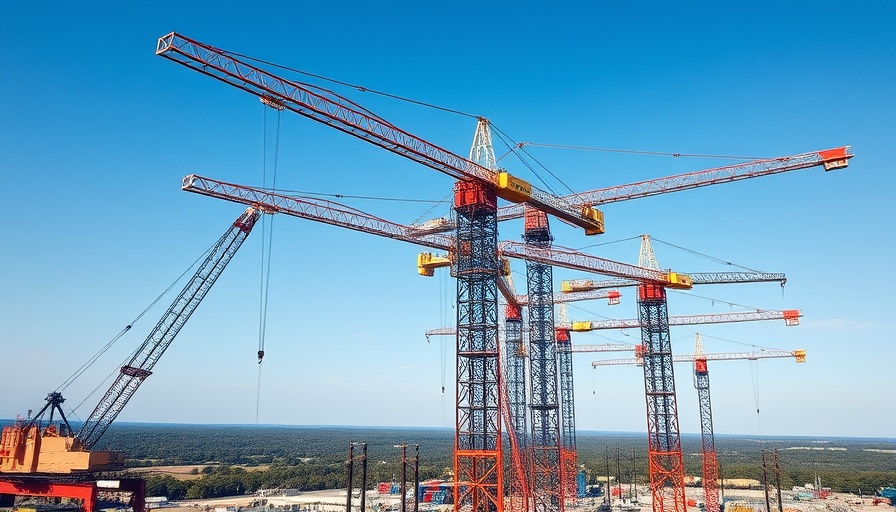
The Grid Expansion Initiative: A Historic Move for Britain's Energy
Ofgem's recent approval of a £24 billion funding package marks a significant leap towards a more sustainable energy future for the UK. With the nation grappling with the need for cleaner energy, this funding will catalyze the upgrade of the electricity supergrid while ensuring the gas infrastructure remains operational. This strategic initiative aims to support the connection of up to 126GW of clean energy by 2030 through 80 new electricity transmission projects, which is set to transform the energy landscape across the UK.
Understanding the Financial Commitment
The initial phase of investment, which kicks off the RIIO-3 price control period from 2026 to 2031, involves allocations that directly impact both the electricity transmission system and the gas grid. Notably, £15 billion is allocated to maintaining the national gas grid and regional distribution networks, while £8.9 billion will be directed towards upgrading the high-voltage electricity transmission system. This unprecedented funding aims not only to upgrade old infrastructures but also to shield consumers from the volatility of the international gas market.
How This Affects Energy Prices
Despite rising network costs—which are expected to increase household energy bills by approximately £104 by 2031—efficiencies from grid improvements could ultimately reduce these costs by around £30. This strategic balance underscores Ofgem’s commitment to protecting consumers while still moving boldly towards a more resilient energy future. The potential to cut costs related to wind farm constraint payments speaks to the importance of efficiency in managing new energy capacities.
The Ripple Effect on the Energy Market
These proposed upgrades will certainly have a wide-reaching impact, not only on households but also on businesses reliant on stable energy supplies. As we shift towards this ambitious energy strategy, there are implications for builders and contractors who will play a crucial role in the construction and development of these projects. Access to homegrown energy sources enhances the economic landscape, fostering job creation within the industry and beyond.
Long-term Environmental and Economic Benefits
The overarching goal of this initiative is clear: to cultivate a more sustainable and self-reliant energy system in the UK. By expanding the grid and integrating clean energy solutions, we are set to contribute significantly to reducing carbon emissions. As industries work collaboratively with government bodies on infrastructure modernization, there's potential for aligning business practices with sustainable goals, further emphasizing the 'green' movement.
Looking Ahead: Opportunities and Challenges
Despite the optimism surrounding these developments, there are challenges that stakeholders must address. The imposition of a 6% equity return cap on private investors indicates a cautious approach to ensuring that the costs do not spiral unchecked under privatization pressures. Moreover, the scrutiny applied in slashing over £8 billion from initial company bids highlights the regulator's commitment to keeping expenditures efficient. As we approach 2025, continued dialogue around investments and consumer impacts will be vital to ensure progress.
A Call to Action for Builders and Contractors
The energy sector is at a pivotal point, and as builders and contractors, your role in this expansion cannot be overstated. Join the conversation on how to best approach these upcoming projects, aligning your practices with sustainable policies aimed at fostering a resilient energy grid. Keeping abreast of these changes and engaging in the tendering process could unlock new business opportunities while helping Britain achieve its clean energy targets.
 Add Row
Add Row  Add
Add 




Write A Comment